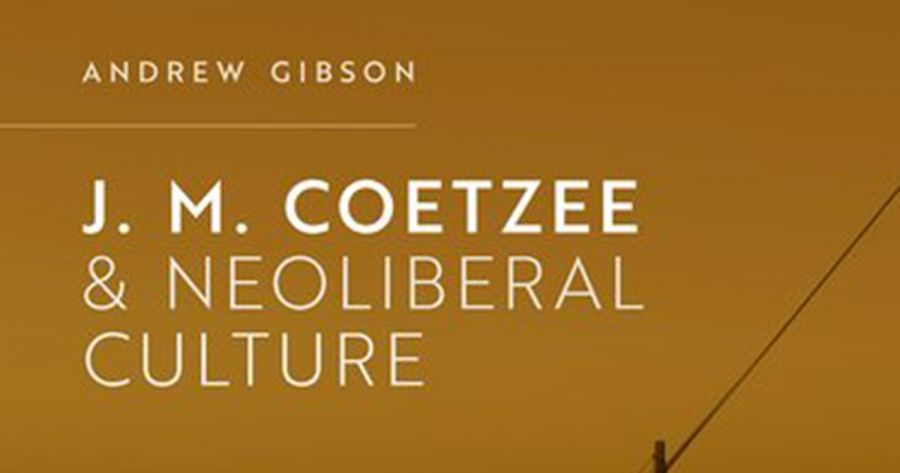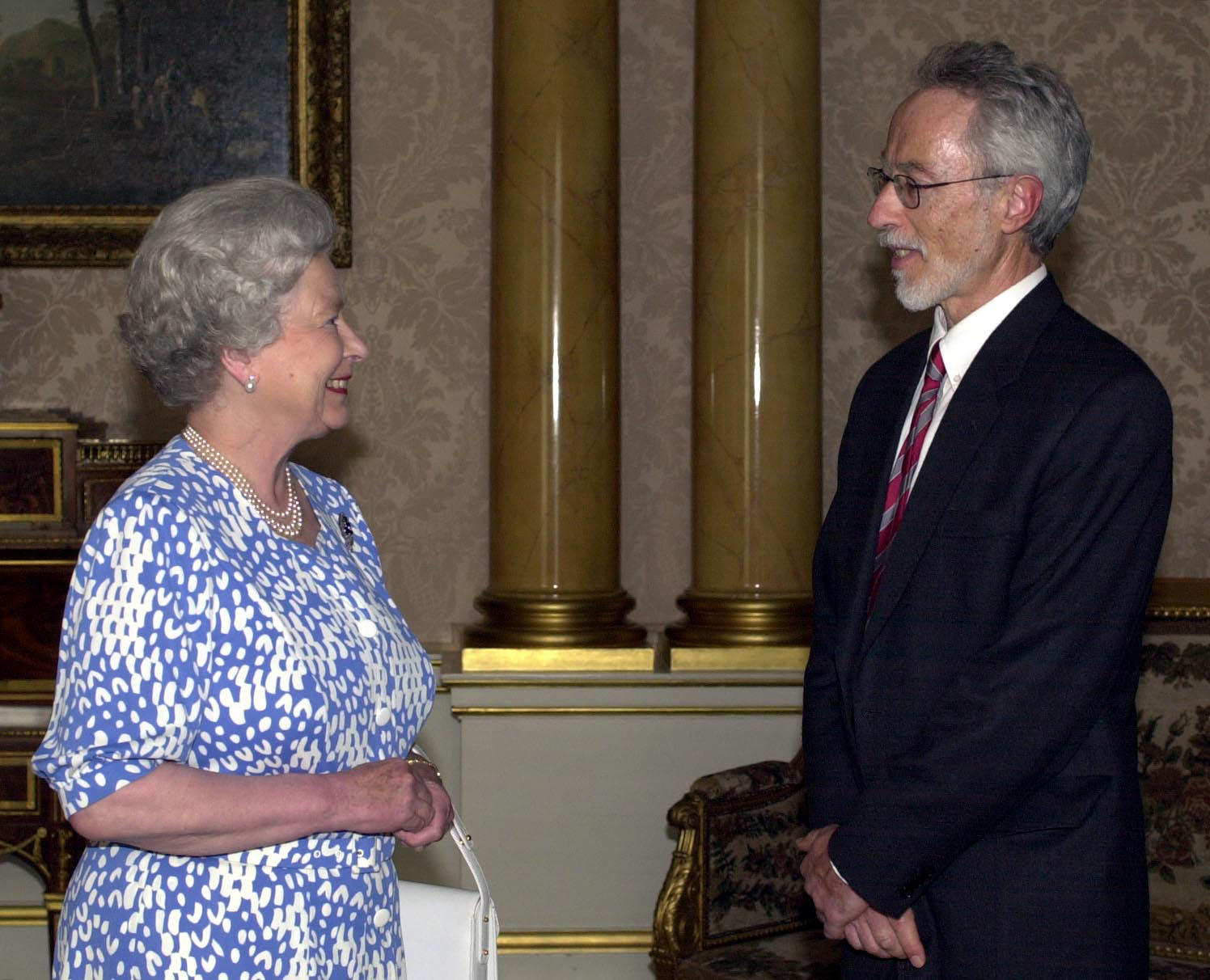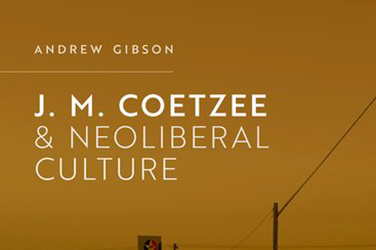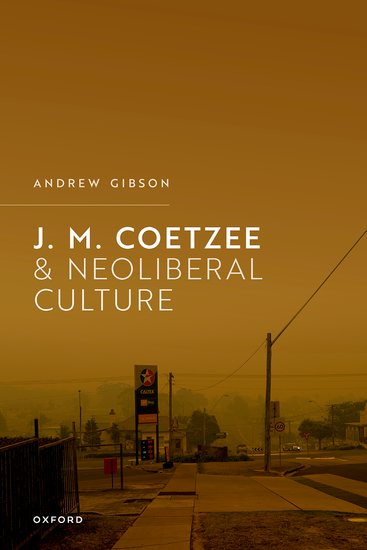
- Free Article: No
- Contents Category: Literary Studies
- Review Article: Yes
- Article Title: An edgy affair
- Article Subtitle: J.M. Coetzee’s ‘especial form of dissidence’
- Online Only: No
- Custom Highlight Text:
Anyone who has read J.M. Coetzee’s Diary of a Bad Year (2007) will vividly recall the character Alan – annoyingly brash, unethical, self-serving and sexist; one of a new generation of tech-savvy investment consultants. For British academic, literary critic, and writer Andrew Gibson, in this new study of Coetzee, these are among the typical traits of neoliberal individualism that Coetzee’s body of writing resists and critiques. Gibson characterises contemporary global neoliberalism as having led not just to the impoverishment of modern culture but to a lack of planetary care, resulting in climate change, precarity, and depleted resources. The book’s dustjacket brings these issues closer to home; it features an apocalyptic image of the thick orange smoke from the 2019 bushfires at the New South Wales coastal town of – appropriately – Eden. (Gibson was in Australia at this time as a Visiting Professor at the J.M. Coetzee Centre for Creative Practice in Adelaide.)
- Article Hero Image (920px wide):

- Article Hero Image Caption: Queen Elizabeth II receives J.M. Coetzee at Buckingham Palace, 2000 (Fiona Hanson/PA Images/Alamy)
- Featured Image (400px * 250px):

- Alt Tag (Featured Image): Sue Kossew reviews 'J.M. Coetzee and Neoliberal Culture' by Andrew Gibson
- Book 1 Title: J.M. Coetzee and Neoliberal Culture
- Book 1 Biblio: Oxford University Press, £70 hb, 279 pp
- Book 1 Cover Small (400 x 600):

- Book 1 Cover (800 x 1200):

The book’s preface makes the case for the continuing relevance of such a critique despite what Gibson suggests might seem like the incipient ending of neoliberalism in recent times. While neoliberalism is most often regarded in terms of economic theory (think Thatcherism or Reaganomics), he is interested in neoliberal culture, an interest informed by his considerable knowledge of and expertise in philosophical, socio-political, cultural, theological, and literary theory. Although the style is somewhat dense and the text replete with references to the likes of Schopenhauer, Kant, Derrida, Foucault, and Badiou, it has a more informal tone at times, using examples from popular culture that make it more accessible.
Gibson repeatedly poses questions about his own method as well as about the nature of neoliberal culture and the role of criticism. He carefully avoids the reductive assertion that Coetzee is simply antagonistic to neoliberal constructions of subjectivity, despite describing him as seemingly ‘allergic’ to those qualities of contemporary culture that ‘afflict him, not just with distaste, but [with] a kind of horror’. Rather, he states that Coetzee ‘takes the neoliberal terms on board and turns them inside out’, an approach that takes into account the writer’s characteristic ambiguity and refusal of an either/or. This is neatly evidenced in the book’s first chapter that focuses on Coetzee’s autobiographical writings. Gibson notes, for example, that the wannabe writer ‘John’ in Youth (2002) is not portrayed merely as a ‘loser’ in a world of apparent winners, but that he accumulates strength of character quietly and secretly, in what Gibson calls a ‘constructive process’ of finding his subjectivity and his writerly voice. This is a finely tuned reading of Youth’s tone.
Furthermore, in contrasting the commodified neoliberal ‘self-promoting subject’ with Coetzee’s self-presentation, Gibson suggests that the writing ‘points in a different direction to it, if a painful one’ (my emphasis). So he insists on Coetzee’s refusal to take the moral high ground – or to adhere to the ‘good story’ of positive self-representation and ‘boosterism’ that neoliberalism promotes – while also drawing attention to his awareness of ‘certain [writerly] duties and responsibilities’ in relation to truth-telling. This insightfully captures the counter-currents in Coetzee’s writing of the self.
Each chapter considers an aspect of neoliberal culture in relation to strategic readings of selected Coetzee texts. Gibson does not claim to present a ‘totalizing’ study of the works but, rather, aims to use his method ‘tactically’ so as not to ‘overpower’ the writing with the criticism. His readings are prefaced by in-depth explications of an element of neoliberalism by means of a historicised or theoretical account. So, for example, in the chapter entitled ‘Sobriety and the New Eudaemonism’ he contrasts neoliberalism’s commercialisation of happiness with the ancient Greek-derived moral virtue of eudaemonia (living well and productively within society). The contemporary pseudo-scientific ‘happiness industry’, he suggests, was generated by the positive psychology movements prevalent in the United States in the 1990s. He reads Waiting for the Barbarians (1980) and Slow Man (2005) as profoundly at odds with this trend and, instead, as incorporating themes he sees as central to much of Coetzee’s writing: states of shock, the ‘unliveable life’, and catastrophe.
This contextualised approach through multiple disciplines proffers, in some cases, new ways of reading Coetzee’s texts. His analysis of The Lives of Animals (1999) and Elizabeth Costello (2003), for example, under the rubric of ‘the refusal of theodicy’, presents a number of original insights. In the case of other texts, Gibson’s analysis provides not so much a radical rethinking as a suddenly illuminating phrase, such as his reference to Magda’s ‘aesthetics of impoverishment’ in In the Heart of the Country (1977). While approaching the work from a new angle, he comes to many of the same conclusions that other scholars have arrived at – its refusal to offer comforting answers to big questions, its lack of resolution, its tone of radical doubt, and its avoidance of fixed positions. This is summed up by Gibson’s comment that reading Coetzee ‘turns out, again and again, to be an edgy affair’.
In considering the role of literature – and, I suspect, literary criticism – in the age of the Anthropocene, Gibson proposes that what matters is whether it ‘asks sufficiently awkward questions about our unthinking confidence in the human being – its freedom and its rights’. He clearly backs Coetzee’s oeuvre as doing exactly this, outlining the subtle and various ways that the writing provides a corrective to the kinds of lazy thought that he identifies in this book. Whilst it is not always easy reading, inviting as it does hard thinking about Coetzee’s literary works and about theories of contemporary society, this new study emphatically, even passionately, re-emphasises the continuing global relevance of Coetzee’s literary-politico-philosophical corpus. At the same time, Gibson makes a persuasive case for the importance of nuanced and complex literature in general, and for what he calls ‘imaginative reason’, in a post-truth world. For all these reasons, this book deserves our serious attention.


Comments powered by CComment